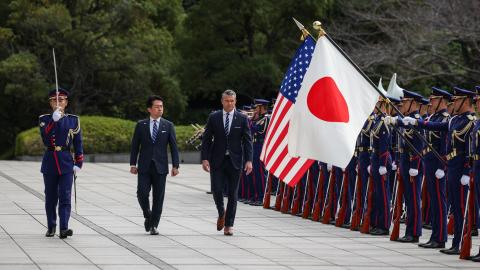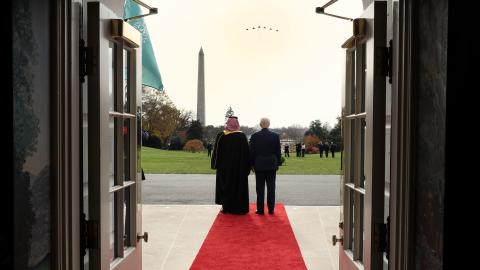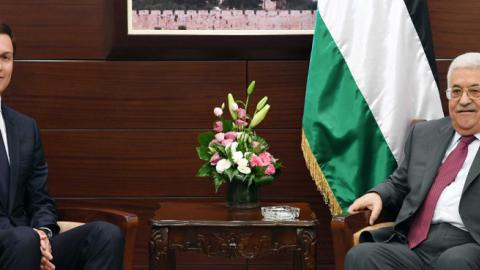In his recent CNN.com article, Aaron David Miller claims to know the "real" goals of the Trump Middle East peace plan. This is strange, because Miller has not seen the plan or been involved with its creation. I have.
Miller grossly mischaracterized the administration's goals. Not once, but three times, he claims the administration's policies are aimed at pleasing domestic political constituencies and he mentions "wealthy Jewish donors." This is a more polished, but no less wrong, version of Congresswoman Ilhan Omar's infamous anti-Semitic trope that support for Israel is "all about the Benjamins."
As a former Middle East policy negotiator, Miller is undoubtedly familiar with the pitfalls that have prevented previous breakthroughs in this troubled region. But like other seemingly intractable conflicts in South Africa, Northern Ireland, and the Balkans, breakthroughs do happen. They often happen after circumstances change, new approaches are taken, or the parties decide to change their calculation of what's in their own best interests.
Administration critics adopt the odd view that, although all past efforts have failed, we must never deviate from them. They are offended by alterations to old formulas, when the old formulas achieved no peace. I witnessed this dead-end thinking countless times at the United Nations.
Nowhere is this truer than on the idea of a "two-state solution." Contrary to Miller's assertion, the Trump administration has never sought to kill the idea of two states. President Trump himself has said he prefers it. But the administration does not see it as an untouchable holy grail. Past efforts to encourage such a solution have been rejected, more so by the Palestinians than the Israelis.
The Trump administration is no less committed to peace than its predecessors. The key difference is that Trump does not feel tied down by the unsuccessful formulas of the past, and he and his team are willing to openly challenge that conventional thinking.
The Jerusalem decision is a prime example. The historic move to recognize Jerusalem as Israel's capital was not a "free gift" to Prime Minister Netanyahu as Trump critics claim. It brought to fruition longstanding US policy as expressed by large bipartisan congressional majorities, and it recognized reality.
There has never been a peace agreement scenario under which Jerusalem would cease to be Israel's capital. So why go on with the charade that this is still a negotiable issue? The charade only served to encourage unrealistic Palestinian goals and was therefore harmful to peace prospects.
The goal of the Trump plan is to end this decades-long conflict and create conditions for a better life for Palestinians and Israelis. The plan will begin to be rolled out at this week's conference in Bahrain.
The vision presented in Bahrain will demonstrate the enormous potential for lifting up the lives of millions of Palestinians. This is no small thing. Economic conditions are quite poor in the West Bank, and among the world's worst in Gaza.
Critics will quickly point out that an economic plan alone won't bring peace. No one disputes that. The administration's extensive and detailed ideas on the thorny final status issues will be revealed soon.
But while political leaders gravitate toward the hottest button issues, no one should sell short the importance economic conditions play in the lives of ordinary people. The Trump plan contains specific and realistic projects that could double Palestinian GDP, create a million new jobs in Gaza and the West Bank, and cut poverty in half. Imagine what that would do to the lives of millions of Palestinian young people who would face a far better future than they face today.
And there's the rub. Palestinian political leaders have already denounced a proposal they have not yet seen. It is perhaps no coincidence that Palestinian Authority President Mahmoud Abbas is 84 years old. Like some of the American and United Nations diplomatic hands who have failed for years, Abbas seems unable or unwilling to shed the preconceptions that have guided him for decades. But the younger generations of Palestinians, not to mention future generations, have everything to gain from the Trump plans.
While critics cling to constructs that have proven unimplementable, Jared Kushner, Jason Greenblatt, and the Trump team are doggedly moving forward with bold, fresh, and innovative ideas for how to solve one of the world's most difficult conflicts. They know the odds of success are long. If they weren't, the problem would have been solved long ago. But we should all wish them well this week, and in the weeks and months ahead.

















